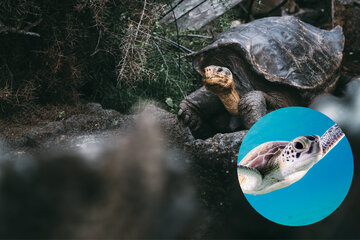Alligator vs. crocodile: What's the difference between a crocodile and an alligator?
Crocodiles and alligators are both ferocious predators, but they're not the same. So what is the difference between an alligator and a crocodile, and which one is more dangerous?
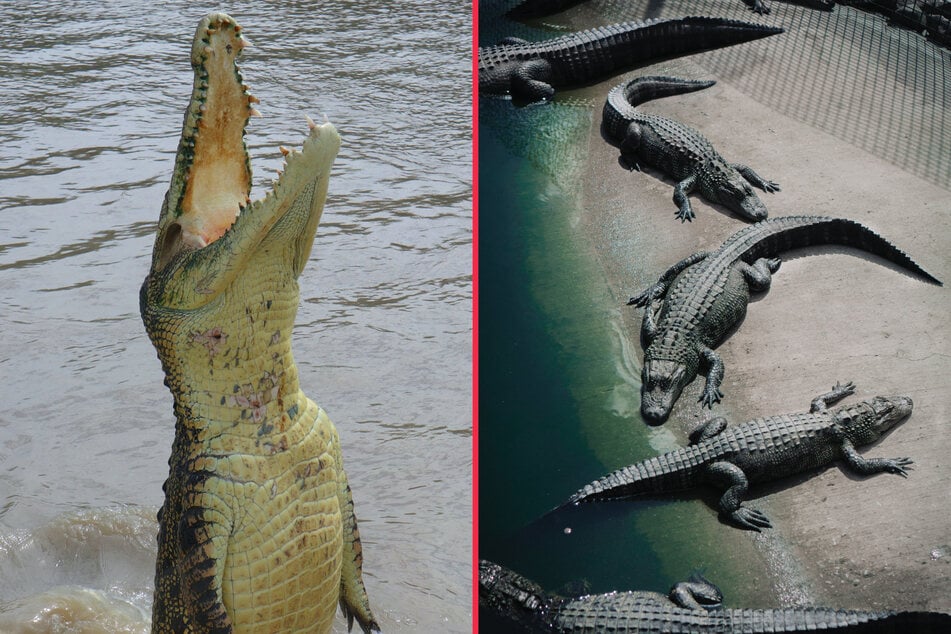
There are few creatures in this world more guaranteed to induce fear and panic than alligators and crocodiles.
It's unlikely that you'll even encounter an animal more dangerous or vicious than these two ravenous reptiles.
No one wants to end up as someone's lunch, so it makes sense that we get pretty freaked out if we see one of these giant lizards crawling towards us.
But you might have found yourself wondering: what's the difference between them? And is one more formidable than the other?
So what's the difference between an alligator and a crocodile in terms of size, habitat, and behavior?
Let's take a look!
What is the difference between a crocodile and an alligator?
There are many differences between alligators and crocodiles, especially if you consider that saltwater and freshwater crocodiles are already very distinct from each other.
Ultimately, it is important to understand that they are, indeed, very different creatures. While they both have sharp pointed teeth, a similar shape, and are brutal hunters capable of ripping us to shreds, these reptiles have distinct identities and come from very different areas of the world.
Here are the key differences between crocodiles and alligators
Physical characteristics: Crocodiles are far bigger creatures than alligators, and are characterized by a thick and muscular body that far outweighs the alligator. As a result, alligators are more nimble and have more maneuverability than their bigger and beefier cousins.
We will go into the details later, but they also have very different snouts and come in varying different colors. An alligator has a wider upper jaw that covers its bottom teeth and webbed feet, while a crocodile have two jaws that are roughly the same size and no webbing on their swimmers. Alligators also have more teeth than crocodiles do, but are not nearly as strong.
How can I tell a crocodile and alligator apart? Look at the nose. If it has a U-shaped nose, then it is likely an alligator. On top of that, crocodiles are generally more chunky and muscular, and significantly slower in the water and on their feet.
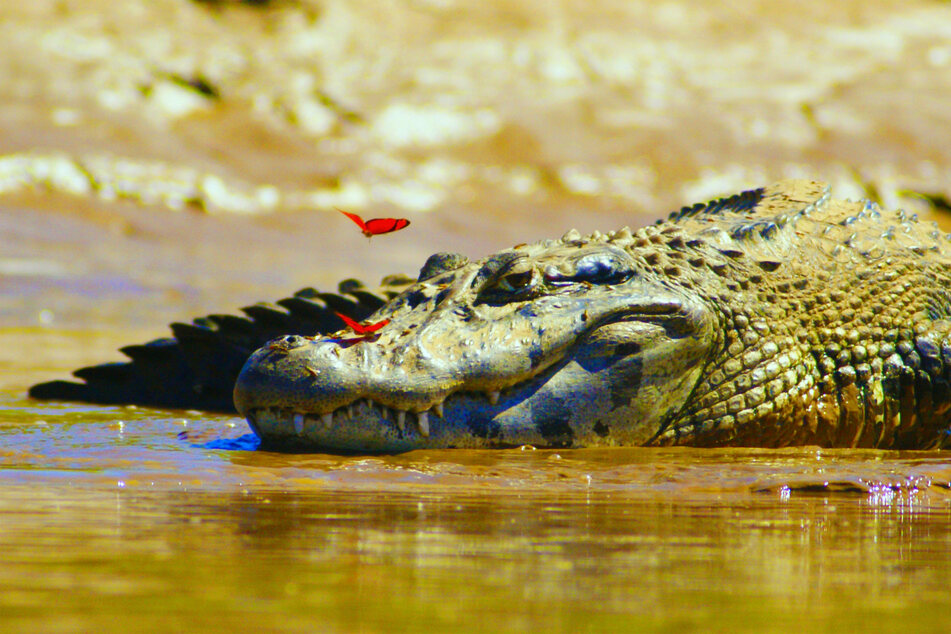
Hunting methods: While both crocodiles and alligators will hunt in water, they do so in very different ways. Alligators have terrible eyesight when swimming so instead use the vibrations they feel through the water to track their prey. They have good eyesight on land, though. In general, alligators will focus on sneaking up on prey and ambushing them, something a crocodile will struggle to do.
On the other hand, crocodiles have fantastic eyesight both in and out of water, but are not quite as fast. Both of these animals will take you into a death roll if they catch you, and are almost impossible to escape from once they've caught you in their jaws. Crocodiles will grab their prey and drag it into the water, and are much bigger, stronger, and significantly more deadly.
Diet: Both of these creatures are considered apex predators and are incredibly capable at catching and consuming their food. Interestingly, despite their wide distribution, crocodiles and alligators eat rather similar food. Keep in mind, though, that because crocodiles are typically much bigger, they also eat bigger animals.
- Crocodiles generally eat: Land animals, including goats, cattle, birds, dogs, possums, and many other mammalian creatures that dare stray in their path. They also eat sea creatures including fish and even sharks.
- Alligators generally eat: Smaller animals both on land and in the sea, including fish, different turtles, insects, deer, and in some cases even bears.
Locations: Alligators and crocodiles live in very different habitats and in very different areas of the world. We have a separate section on this point, but in summary, crocodiles are far more widespread across the planet than alligators are.
Alligator vs. crocodile size
Crocodiles are significantly larger and heavier than alligators. We are going to work in averages here, and not take into account the difference between different gator and croc species. Keep in mind, though, that both of these animals are apex predators and extremely deadly, just because an alligator is a bit smaller doesn't mean that it's significantly less dangerous.
Average size of a crocodile vs an alligator:
- Crocodile size: Generally between 12–20 feet in length, weighing anything from 500 to 2000 pounds, when fully grown.
- Alligator size: Generally between 8 and 12 feet in length, weighing anything from 500 to 800 pounds, when fully grown.
On sizes: In general, female crocodiles and alligators are smaller in size and weight than their male equivalents. That being said, the size difference isn't huge and they are all massive creatures when fully grown.
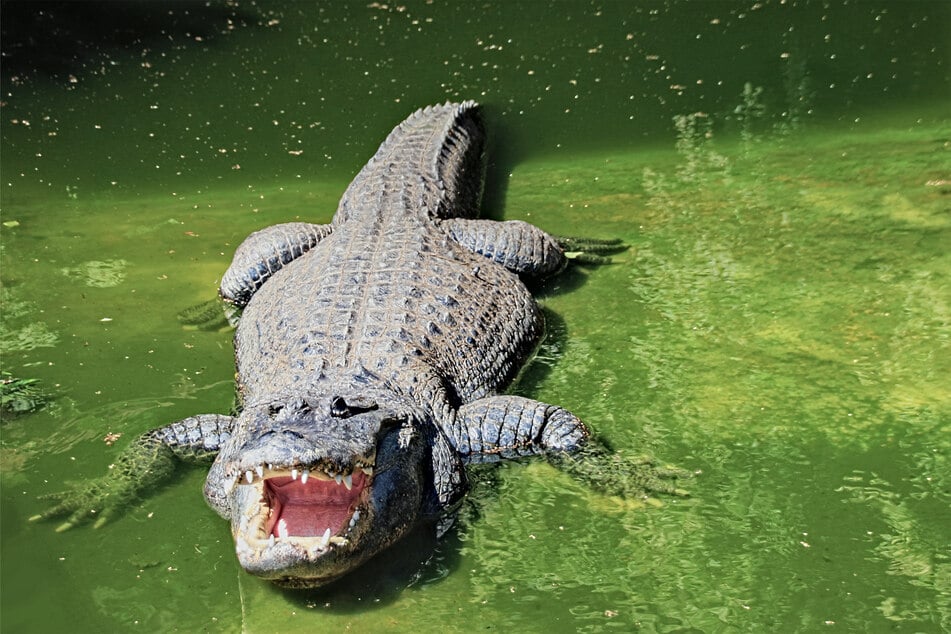
Crocodile vs. alligator snout
Crocodiles have a more V-shaped snout, while an alligator generally has a longer U-shaped snout. On top of that, look at their jaw shape in general. Alligators have a longer and narrower face, with an overbite that hides their bottom jaw. Meanwhile, crocodiles have fewer teeth and a wider face, and look extremely muscular.
Alligator vs. crocodile habitat and location
Alligators and crocodiles don't overlap all that much, and crocodiles are far more common across the globe than alligators are. In general, alligators primarily live in freshwater (something that could explain why they are less widespread), along the banks of inland rivers. Meanwhile, there are both saltwater and freshwater crocodiles, each of which have different characteristics in themselves.
Where can you find alligators or crocodiles?
- You can find alligators in: Southern US states, China (primarily the Yangtze River)
- You can find crocodiles in: Northern Australia, Florida, Central America, various areas within Asia and Oceania, South America, a variety of African countries.
Crocodiles are famous for their presence in Australia and also along the Nile river in Egypt. Meanwhile, alligators regularly attack people and animals in Florida.
Caiman vs. alligator vs crocodile
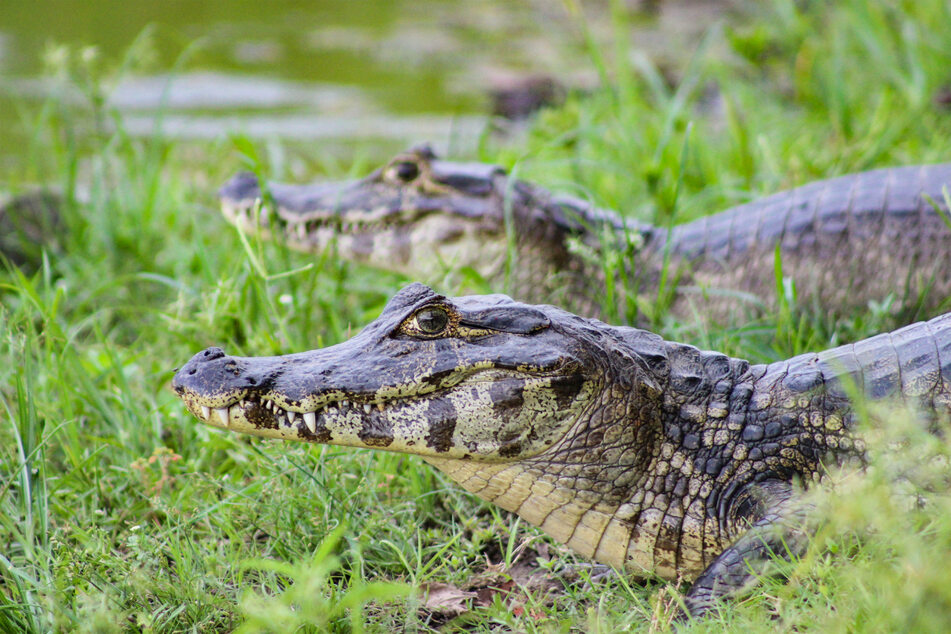
Predominantly found in Mexico and a variety of other Central and Southern American countries, caimans are far smaller than both alligators and crocodiles. Generally sitting at around 20–80 pounds in weight and far shorter in length, these crocodilian reptiles are significantly less dangerous than their giant cousins, but not to be sneezed at either.
We have already gone through the primary differences between alligators and crocodiles, but what about caimans? They are closer to alligators than crocodiles, with over biting jaws and a smaller stature. Indeed, caimans are smaller and more agile than both of their bigger cousins and have far longer and sharper teeth as well.
The main difference is, of course, the caiman's smaller size. In the end, though, it comes down to the fact that alligators, crocodiles, and caimans are all different animals with different characteristics.
Fun fact: The black caiman can grow to more than 10 feet, and can get heavier than 1000 pounds, so not every caiman is as small as we'd expect.
Alligator vs crocodile - who would win?
In general, crocodiles are bigger and stronger than the average alligator, and even more ferocious. While the alligator is far faster and more nimble, they'd still need to get close to kill the crocodile. At that point, the crocodile would be more than capable of subduing the smaller and less aggressive reptile.
Considering all of this, a crocodile would probably win in a fight with an alligator. They are stronger and likely to attack first, but that doesn't mean the battle won't be epic.
Cover photo: Collage: Unsplash/Simon Watkinson/Amber Kipp


